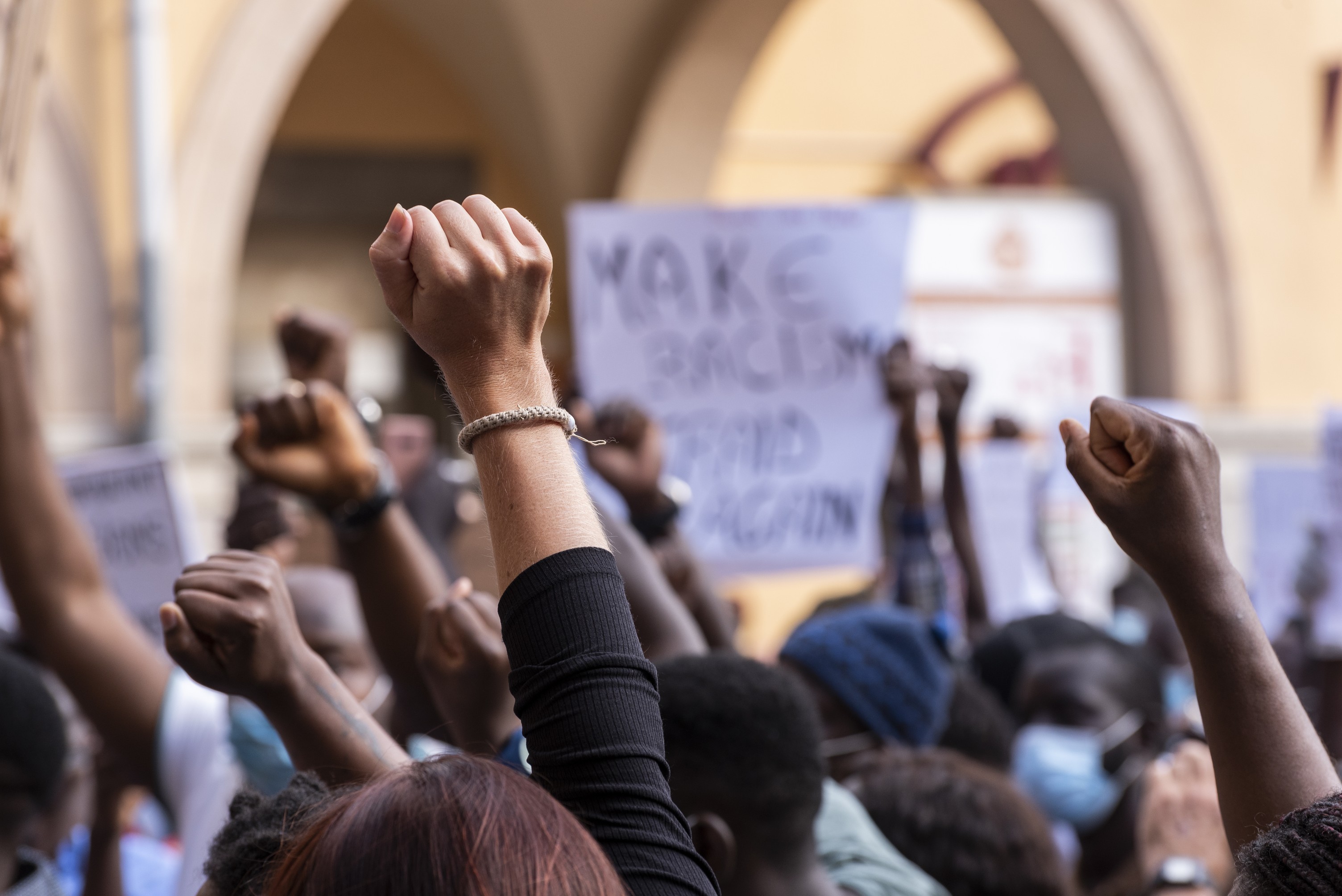
Two projects led by Valenti faculty were among a small handful selected for UH Grants to Enhance Research on Racism, a competitive new pool of grants designed to support University of Houston scholars exploring issues around racism. The program sought out bold new ideas that showed clear evidence of short-term impact and could contribute to long-term research, scholarship, or artistic expression.
Addressing Racism through Monitoring and Mitigation of Racially Charged Hate Crimes and Violence: An Interdisciplinary Approach
Dr. Lan Ni, a full professor of public relations, is the principal investigator for the research project ‘Addressing Racism through Monitoring and Mitigation of Racially Charged Hate Crimes and Violence: An Interdisciplinary Approach.’
The project won a $65,000 research grant designated for large, multidisciplinary groups. The multidisciplinary research team includes fellow University of Houston professors Dr. Weidong Shi and Dr. Yan Huang, who is an assistant professor of integrated strategic communication, and Florida International University professor Dr. Bogdan Carbunas.
“This project hopes to put in place prevention and monitoring measures to reduce polarized and hostile perceptions of vulnerable victim communities, thus reducing extremism and racial violence,” said Ni.
Their work aims to mitigate racially charged hate crimes and violence online by helping researchers identify and monitor racist and hate-crime related accounts and groups and develop counter-narratives for racially charged posts on social networks.
“I have been motivated by our country’s anti-racist movement for social and racial equity to further my research on communicating about identity and culture,” said Ni, whose research focuses on intercultural public relations. “As a team, we are grateful for this grant and the support it will provide us for advancing our collective understanding of how to best address racism.”
The team’s long-term hope is that reducing hate crimes will enhance the physical, mental and financial well-being of marginalized communities. They also hope that by depolarizing opinions, potential perpetrators can work to rebuild a sense of reality amid reduced feelings of social disintegration.
When Black and Brown Lives Matter: The effectiveness of social media messaging on intentions to engage in anti-racism collective action
Dr. Summer Harlow, an associate professor of journalism who has done extensive research around media coverage of marginalized groups and protests, was awarded $10,000 for her research project “When Black and Brown Lives Matter: The effectiveness of social media messaging on intentions to engage in anti-racism collective action.”
“When I saw that the University of Houston was offering this grant on racism, I was excited to see an institutional focus on a research area that, unfortunately, often has been less of a priority, at least in terms of funding,” said Harlow. “The grant call aligned perfectly with my research area of interest, which hasn’t happened that often in the past.”
Harlow will conduct a survey experiment to test how different types of messaging on social media contribute to support for and engagement with anti-racism social justice movements. In this case, Black Lives Matter and immigrant rights will be the two subjects researched.
“We know that how the news media frame protesters in news coverage contributes to the viability of the movement, so it’s important to consider how social media might be changing things,” said Harlow.
Harlow’s project builds on work she and her research partner, University of Minnesota, Twin Cities professor Dr. Danielle Kilgo, have previously done in identifying a “hierarchy of social struggle” in protest coverage. Their research has found that some protests are more delegitimized in news coverage than others, particularly anti-Black racism protests, which receive the most negative and marginalizing coverage. An outgrowth of her previous work examining media representations of protesters and social movements, Harlow’s new project will also factor in public opinion in an attempt to focus on what activists can do well in terms of messaging.
“I hope to be able to show how anti-racism activists can better deploy social media to encourage the public to support their cause and to mobilize the public to actually take action,” said Harlow. “Public support is a crucial step toward actual policy change.”
Harlow is partnering with Black Lives Matter-Houston and FIEL Houston, a local immigrant rights group. Her findings will provide a foundation to offer workshops to help activists with their strategic communication on social media and to sponsor community days of action aimed at encouraging the local public to get involved with anti-racism measures. She also hopes to find an opportunity for intersectionality within the Black civil rights movement and the immigrant rights movement and ways for these movements to work together toward racial justice.